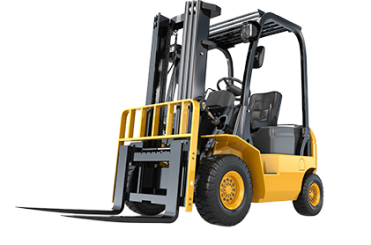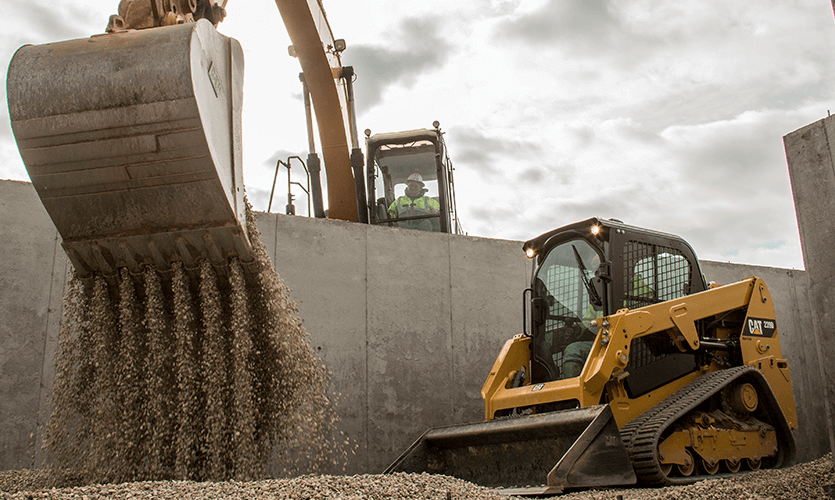Required Heavy Equipment Rental? Pick Our Mini Excavator Rental and Boom Lift Rental Choices
Required Heavy Equipment Rental? Pick Our Mini Excavator Rental and Boom Lift Rental Choices
Blog Article
Necessary Tips for Taking Care Of Heavy Equipment Rental Arrangements and Logistics Properly
Efficiently managing hefty tools rental arrangements and logistics is crucial for the success of any kind of job that counts on these resources. A thorough understanding of rental terms, combined with specific evaluation of devices demands, lays the foundation for desirable negotiations. Coordinating transport logistics and preparing for continuous maintenance can significantly lower unforeseen costs and delays. The ins and outs of these components frequently present difficulties that need critical foresight. What are the crucial considerations that can change these prospective risks into possibilities for efficiency and cost-saving?
Understand Rental Terms
Understanding rental terms is essential for effective heavy tools administration. The rental duration specifies the timeframe for which the devices is leased, affecting budgeting and job timelines.
Additionally, it is crucial to understand the maintenance commitments outlined in the agreement. Normally, rental companies keep the equipment, yet comprehending that is accountable for regular checks and fixings is vital to avoid operational interruptions. Furthermore, terms may consist of stipulations concerning responsibility for damages or burglary, which can have severe monetary implications otherwise effectively understood.

Assess Devices Requirements
Assessing devices needs is an essential step for any job manager aiming to enhance resource allowance and improve functional effectiveness. This procedure includes a detailed analysis of the task needs, consisting of details jobs, timelines, and the kind of tools required to accomplish preferred results.
Begin by determining the scope of the project and the jobs that will certainly be executed. Consider factors such as the surface, the range of procedures, and any type of possible difficulties that might affect tools selection. Involving with staff member who will certainly run the machinery can provide beneficial understandings right into practical needs and preferences.

Following, assess the ability and capacities of readily available equipment options. It is important to match the appropriate devices to the jobs available, guaranteeing that it can handle the anticipated work without jeopardizing safety and security or efficiency.
Additionally, variable in the rental duration and regularity of use. Comprehending these elements can assist figure out whether renting out or buying is the most cost-efficient service. By performing an extensive analysis of equipment demands, project supervisors can make enlightened decisions that bring about enhanced performance and reduced functional prices.
Negotiate Efficiently
As soon as the devices requirements are plainly recognized, the next action entails effective settlement with rental firms to protect desirable terms. Begin by looking into various rental companies to comprehend their prices frameworks, stock accessibility, and online reputation.
When coming close to the negotiation table, be clear about your requirements, including the type of devices, rental look at these guys duration, and any type of extra solutions you may need. This openness makes it possible for rental companies to provide tailored solutions that can meet your specific needs (dozer rental). Don't be reluctant to ask for discounts, especially for long-term rentals or mass orders, as lots of business agree to supply giving ins to secure bigger agreements
Additionally, consider discussing terms associated to insurance coverage, upkeep, and shipment charges. These aspects can dramatically influence the total cost and must be clearly detailed in the rental arrangement. Ensure that all agreed-upon terms are recorded in creating to avoid misunderstandings and secure your interests throughout the rental period. Reliable negotiation additional resources not only causes expense savings but additionally establishes a favorable relationship with the rental firm.
Coordinate Transportation Logistics
Collaborating transport logistics is a vital facet of managing heavy tools rental agreements. Efficient transport ensures that tools is supplied on schedule and in optimum condition, thereby lessening downtime and improving project performance. To achieve this, it is important to develop a thorough logistics plan that outlines the entire transport process from pick-up to distribution.
Begin by evaluating the certain transport needs based upon the type and size of the devices included - mini excavator rental. Engage with trusted transportation service providers who focus on hefty equipment to ensure they possess the required experience and devices, such as flatbed vehicles or specialized trailers. Review variables such as weight restrictions, course restrictions, and needed licenses to prevent unforeseen delays
In addition, maintain open communication with both the rental firm and the transport copyright to work with additional hints routines properly. Confirm all details, including pickup and drop-off times, to make sure everyone is lined up and prepared. Develop backup strategies to deal with any type of prospective disruptions, such as unfavorable weather condition or traffic problems, which might impact the transport timeline. By meticulously coordinating transportation logistics, you can support the integrity of your rental agreement and promote smooth job execution.
Plan for Maintenance and Support

Additionally, it is crucial to connect directly with the rental copyright regarding upkeep responsibilities. Some arrangements may include maintenance as part of the rental solution, while in other instances, the onus might fall on the occupant. Comprehending these terms will certainly aid avoid unanticipated expenses and responsibilities.
On top of that, having accessibility to technological assistance can be indispensable. Ensure that the rental business uses 24/7 support or an emergency situation call, enabling quick resolution of any type of devices issues. Educating your team on proper tools use and regular checks can additionally dramatically boost operational performance.
Verdict
In conclusion, effective management of heavy equipment rental arrangements and logistics joints on a complete understanding of rental terms, exact analysis of devices needs, and skilled arrangement skills. Highlighting clear interaction with all stakeholders stays critical in navigating the complexities of tools service and logistics administration.
Efficiently taking care of hefty equipment rental agreements and logistics is important for the success of any type of job that counts on these resources. By thoroughly evaluating and understanding these rental terms, organizations can make educated choices, reduce risks, and make certain that their hefty tools monitoring straightens with job goals and economic restrictions.Working with transport logistics is an important aspect of managing heavy equipment rental contracts.In conclusion, efficient administration of hefty devices rental agreements and logistics joints on a complete understanding of rental terms, accurate analysis of devices demands, and skilled negotiation abilities. Emphasizing clear communication with all stakeholders continues to be essential in browsing the intricacies of equipment rental and logistics administration.
Report this page